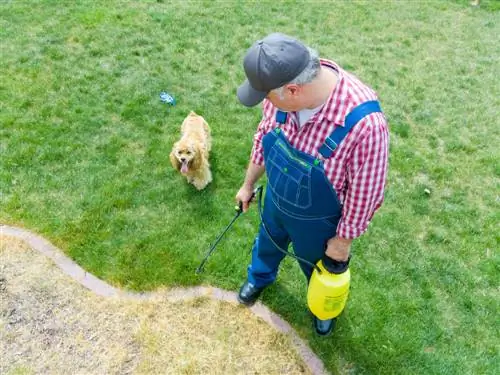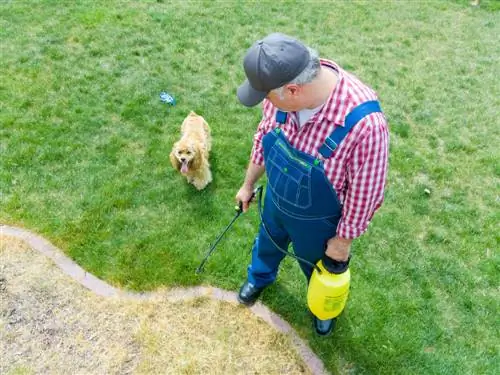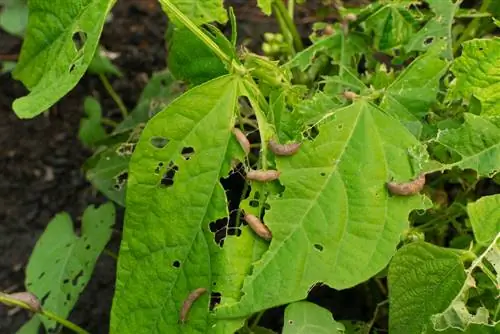- Author admin [email protected].
- Public 2023-12-16 16:46.
- Last modified 2025-01-23 11:22.
Every garden owner knows the problem: even with the most persistent weeding, the weeds cannot be contained. It then makes sense to resort to the chemical club, because the sprays and powders promise quick and yet ecologically compatible help. In the following article you will learn, among other things, how to use the products correctly and where the preparations can be applied.

How can I effectively destroy weeds with chemicals?
To kill weeds with chemicals, choose an approved herbicide, such as glyphosate or lawn weed killer with fertilizer. Follow the dosage and application instructions on the packaging and only use it on horticultural or agricultural areas to reduce environmental impact.
What are the advantages and disadvantages of chemical weed killers?
| Advantages | Disadvantages |
|---|---|
| Work quickly and reliably. | Harmful to the environment. |
| Now mostly bee-friendly. | Harmful to aquatic organisms. |
| Effortless to deploy. | Can also be dangerous for children and pets. |
| Have a long-term effect. | May irritate the skin and eyes. |
| Modern products are biodegradable. | Can also destroy desired plants, as they do not only affect weeds. |
| Combined preparations also act as fertilizer. | May only be used within the strict framework of the Plant Protection Act. |
What chemical weed killers are there?
Specialist retailers have a variety of different products that promise a comprehensive effect. These are available in powder form or liquid. They can be scattered according to the dosage stated on the packaging or dissolved in water and sprayed onto the plant.
Glyphosate, an active ingredient almost always contained
This preparation is currently on everyone's lips because it is suspected that its application poses a lasting threat to humans and animals. The agent is found in many weed killers available in Germany. It is called a total herbicide because it reliably kills all plants. The only exceptions to this are genetically modified and therefore resistant crops. The very good effect is based on blocking amino acid production.
Lawn weed killer with fertilizer (combination preparations)
Some fertilizers, for example for lawns, contain effective weed killers. If you want to use these, you should definitely make sure that they are not dangerous to bees. Then you can also use them to treat flowering weeds.
How will the funds be spent
That depends on which product you are applying. Strictly follow the instructions printed on the packaging. Almost all weed killers should only be applied in dry weather so that the products do not seep into the ground and inadvertently attack other plants.
Depending on whether you use granules or a spray, the procedure differs. Spray liquid preparations sparingly, but wet the entire weed plant.
Use weed killer wisely
How chemical weed killers may be used is precisely regulated in Section 12 of the Plant Protection Act. The herbicides
- must be approved,
- must not be used near water and
- can only be applied to areas used for horticulture, agriculture or forestry.
Do not use spray agents or powders on paved areas, as the use of chemical agents is generally prohibited here. Violations are punished with drastic fines of up to EUR 50,000..
The reason for this is water protection. Weed killers cannot seep into the ground sufficiently on sealed surfaces. They could end up in the sewage system and, via the waterworks, in the drinking water of consumers.
What alternatives are there?
The most sustainable way to permanently get rid of weeds is mechanical weeding. You can tackle weeds in the cracks of patio slabs with a joint scraper (€10.00 on Amazon) or a flame burner.
Tip
Please read the warnings printed on the packaging carefully. Some preparations can cause serious eye irritation or allergies if used improperly. If necessary, wear safety glasses and protective gloves.






